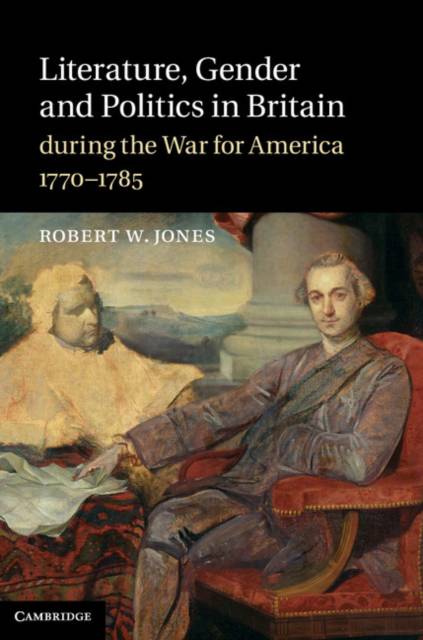
- Afhalen na 1 uur in een winkel met voorraad
- Gratis thuislevering in België vanaf € 30
- Ruim aanbod met 7 miljoen producten
- Afhalen na 1 uur in een winkel met voorraad
- Gratis thuislevering in België vanaf € 30
- Ruim aanbod met 7 miljoen producten
Zoeken
Literature, Gender and Politics in Britain during the War for America, 1770-1785
Robert W Jones
Hardcover | Engels
€ 104,95
+ 209 punten
Omschrijving
The successful performance of a particular kind of masculinity was critical to political life during the eighteenth century, when men who claimed membership of the public sphere were expected to be men of honour as well as property. By the 1770s, however, the transformative effects of commerce and the claims of politeness complicated older certainties. Robert Jones examines how the parliamentary Opposition and their literary allies responded to political pressures and the emergencies of a disastrous war by fashioning a new mode of politics based on a more flexible range of masculinities. Basing his study on close readings of Edmund Burke and Richard Brinsley Sheridan, the trials of General Burgoyne and Admiral Keppel, and the Whig appropriation of Thomas Chatterton, Jones explores how Opposition discourse risked the charge of effeminacy in order to fuse the languages of honour and sensibility.
Specificaties
Betrokkenen
- Auteur(s):
- Uitgeverij:
Inhoud
- Aantal bladzijden:
- 280
- Taal:
- Engels
Eigenschappen
- Productcode (EAN):
- 9781107007895
- Verschijningsdatum:
- 14/11/2011
- Uitvoering:
- Hardcover
- Formaat:
- Ongenaaid / garenloos gebonden
- Afmetingen:
- 152 mm x 229 mm
- Gewicht:
- 539 g

Alleen bij Standaard Boekhandel
+ 209 punten op je klantenkaart van Standaard Boekhandel
Beoordelingen
We publiceren alleen reviews die voldoen aan de voorwaarden voor reviews. Bekijk onze voorwaarden voor reviews.











